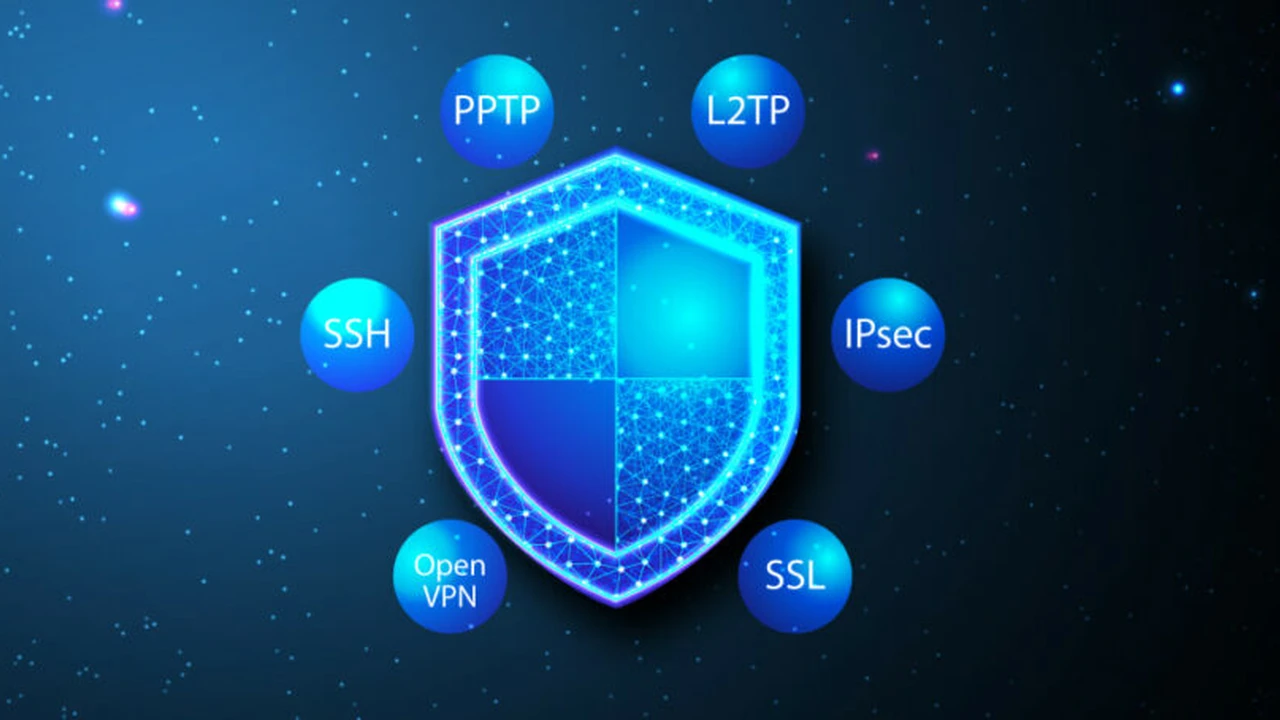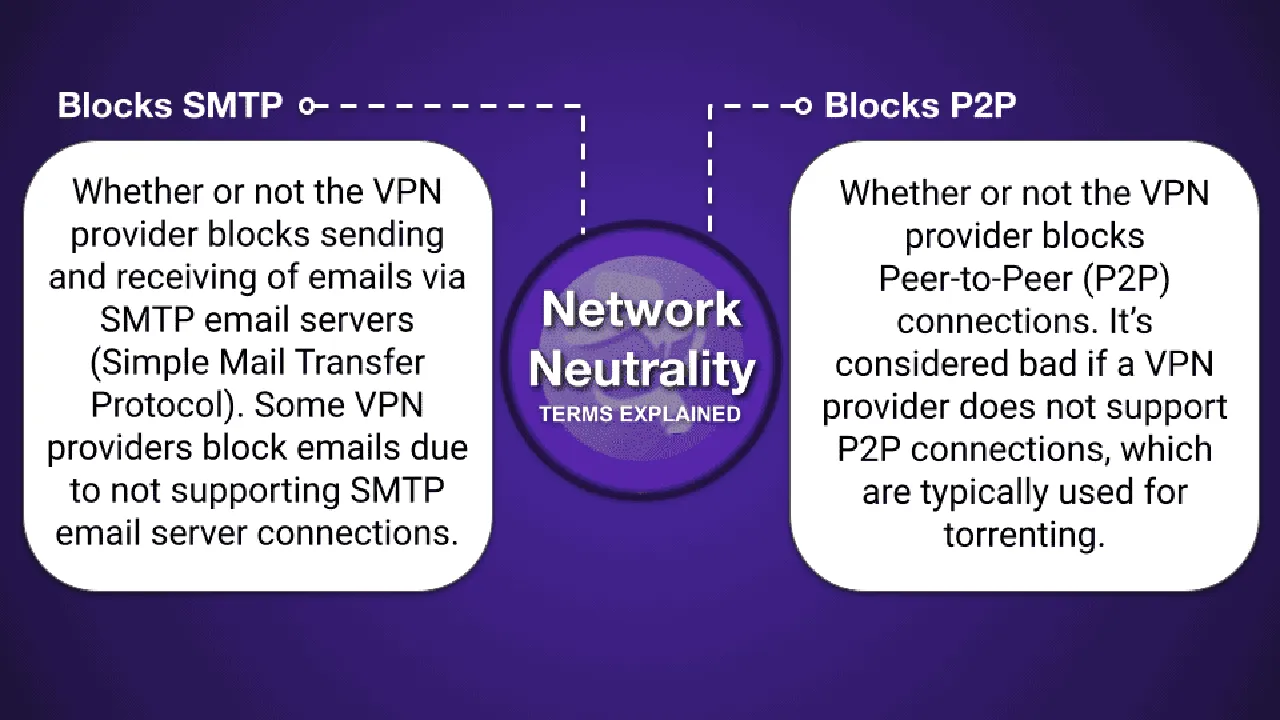Comparing 3 VPNs for Advanced Security Features and Protocols
A detailed comparison of VPNs focusing on advanced security features like OpenVPN, WireGuard, and IKEv2 protocols for superior protection.

A detailed comparison of VPNs focusing on advanced security features like OpenVPN, WireGuard, and IKEv2 protocols for superior protection. In today's digital landscape, where cyber threats lurk around every corner and online privacy is constantly under siege, a Virtual Private Network (VPN) has become an indispensable tool. But not all VPNs are created equal, especially when it comes to advanced security features and the underlying protocols that power them. This comprehensive guide dives deep into a comparison of three leading VPN providers – NordVPN, ExpressVPN, and Surfshark – specifically examining their advanced security offerings and the protocols they employ to keep your digital life safe and sound.
Comparing 3 VPNs for Advanced Security Features and Protocols
Choosing the right VPN can feel like navigating a labyrinth of technical jargon and marketing claims. When your primary concern is robust security, understanding the nuances of encryption standards, tunneling protocols, and additional security features becomes paramount. We're going to break down what makes NordVPN, ExpressVPN, and Surfshark stand out in the crowded VPN market, focusing on their commitment to advanced security.
Understanding VPN Protocols The Foundation of Your Security
VPN protocols are the rules and methods that dictate how your data travels securely between your device and the VPN server. They are the backbone of your VPN's security and performance. The three most prominent and secure protocols you'll encounter are OpenVPN, WireGuard, and IKEv2/IPsec. Let's explore how our chosen VPNs implement these.
OpenVPN A Time-Tested Security Standard
OpenVPN is an open-source VPN protocol widely regarded for its strong security and flexibility. It supports a variety of encryption algorithms, including the industry-standard AES-256. Its open-source nature means it's constantly scrutinized by security experts worldwide, making it incredibly robust and trustworthy.
- NordVPN's OpenVPN Implementation: NordVPN offers OpenVPN (UDP and TCP) as a primary protocol. They pair it with AES-256-GCM encryption, which is considered military-grade. NordVPN's custom servers are optimized to work seamlessly with OpenVPN, ensuring both security and decent speeds.
- ExpressVPN's OpenVPN Implementation: ExpressVPN also heavily relies on OpenVPN, offering both UDP and TCP options. They use AES-256 encryption with an RSA-4096 handshake and SHA-512 HMAC authentication, providing a very high level of security. Their implementation is known for its stability and reliability.
- Surfshark's OpenVPN Implementation: Surfshark provides OpenVPN (UDP and TCP) with AES-256-GCM encryption. They ensure their OpenVPN connections are secure and performant, making it a solid choice for users prioritizing proven security.
WireGuard The Future of VPN Protocols for Speed and Security
WireGuard is a newer, leaner, and faster VPN protocol designed to be simpler and more efficient than OpenVPN. It uses state-of-the-art cryptography and has a significantly smaller codebase, making it easier to audit and less prone to vulnerabilities. It's rapidly gaining popularity for its impressive speed and strong security.
- NordVPN's WireGuard Implementation (NordLynx): NordVPN has developed its own custom protocol called NordLynx, which is built around WireGuard. NordLynx addresses some of WireGuard's privacy concerns by using a double NAT (Network Address Translation) system, ensuring that no identifiable user data is stored on the server. This makes NordLynx incredibly fast and secure, often outperforming other protocols.
- ExpressVPN's WireGuard Implementation (Lightway): ExpressVPN has also developed its own proprietary protocol called Lightway. While not directly WireGuard, Lightway shares many of WireGuard's principles: it's lightweight, fast, and uses modern cryptography. It's designed for speed and reliability, especially on mobile devices and unstable networks, while maintaining strong security.
- Surfshark's WireGuard Implementation: Surfshark fully supports WireGuard, offering it as a standard protocol option. They leverage WireGuard's inherent speed and security benefits, making it an excellent choice for users who want a fast and secure connection without compromising on privacy.
IKEv2/IPsec A Robust Choice for Mobile Devices and Stability
IKEv2/IPsec (Internet Key Exchange version 2 / Internet Protocol Security) is another highly secure and stable VPN protocol, particularly favored for mobile devices due to its ability to quickly re-establish connections when switching networks (e.g., from Wi-Fi to cellular data). It uses strong encryption standards.
- NordVPN's IKEv2/IPsec Implementation: NordVPN offers IKEv2/IPsec, using AES-256 encryption. It's a reliable option, especially for users on iOS and macOS devices, providing stable and secure connections.
- ExpressVPN's IKEv2/IPsec Implementation: ExpressVPN also supports IKEv2/IPsec with AES-256 encryption. It's a solid choice for users who prioritize stability and seamless transitions between networks, particularly on Apple devices.
- Surfshark's IKEv2/IPsec Implementation: Surfshark includes IKEv2/IPsec support, utilizing AES-256 encryption. It's a good alternative for users seeking a balance of speed and security, especially on mobile platforms.
Advanced Security Features Beyond Protocols for Enhanced Protection
While protocols are crucial, a truly secure VPN offers a suite of additional features designed to bolster your privacy and protect you from various online threats. Let's look at the advanced security offerings of NordVPN, ExpressVPN, and Surfshark.
Kill Switch Essential for Data Leak Prevention
A kill switch is a critical security feature that automatically disconnects your device from the internet if your VPN connection drops unexpectedly. This prevents your real IP address and unencrypted data from being exposed.
- NordVPN's Kill Switch: NordVPN offers two types of kill switches: an application-level kill switch that closes specific apps if the VPN connection drops, and a system-wide kill switch that cuts off all internet traffic. This dual approach provides comprehensive protection.
- ExpressVPN's Kill Switch (Network Lock): ExpressVPN's kill switch, called Network Lock, is system-wide and highly effective. It ensures that no data leaks occur if the VPN connection is interrupted, maintaining your anonymity.
- Surfshark's Kill Switch: Surfshark provides a reliable kill switch that can be configured to be system-wide, preventing any data exposure if the VPN connection fails.
DNS Leak Protection and IP Leak Prevention Safeguarding Your Identity
DNS leaks occur when your device sends DNS requests outside the encrypted VPN tunnel, potentially revealing your browsing activity to your ISP. IP leaks expose your real IP address. Robust VPNs prevent both.
- NordVPN's Leak Protection: NordVPN includes built-in DNS leak protection and IPv6 leak protection. They operate their own private DNS servers, ensuring all your DNS requests are handled securely within the VPN tunnel.
- ExpressVPN's Leak Protection: ExpressVPN also offers strong DNS leak protection and IPv6 leak protection. They run their own private, zero-knowledge DNS on every server, preventing any third-party interference or logging of your DNS queries.
- Surfshark's Leak Protection: Surfshark provides comprehensive DNS and IPv6 leak protection. They use private DNS on each server to ensure your online activities remain private and your real IP address is never exposed.
Double VPN Multi-Hop for Enhanced Anonymity
Double VPN (also known as Multi-Hop) routes your internet traffic through two separate VPN servers, encrypting your data twice. This adds an extra layer of security and anonymity, making it significantly harder to trace your online activities.
- NordVPN's Double VPN: NordVPN is well-known for its Double VPN feature. Users can select specific server pairs to route their traffic through, providing enhanced encryption and obfuscation. This is particularly useful for users in high-censorship regions or those requiring maximum anonymity.
- ExpressVPN's Multi-Hop: ExpressVPN does not offer a traditional 'Double VPN' feature. Their focus is on optimizing single-server connections for speed and security. While some users might prefer multi-hop, ExpressVPN argues that their robust single-server encryption and no-logs policy provide sufficient security for most users.
- Surfshark's MultiHop: Surfshark offers a MultiHop feature, allowing users to connect through two different VPN servers in different countries. This provides an extra layer of security and helps to further obscure your online footprint.
Obfuscated Servers Stealth Mode for Restricted Networks
Obfuscated servers (also known as stealth servers or cloaking technology) are designed to make your VPN traffic appear as regular internet traffic. This helps bypass VPN blocks and deep packet inspection (DPI) in countries with strict internet censorship or on restrictive networks (e.g., workplaces, schools).
- NordVPN's Obfuscated Servers: NordVPN offers dedicated obfuscated servers. When connected to these servers, your VPN traffic is disguised, allowing you to bypass VPN detection and access content even in highly restricted environments.
- ExpressVPN's Obfuscation: ExpressVPN automatically applies obfuscation when it detects VPN blocking. Their Lightway protocol and smart server technology are designed to be highly resistant to detection, making it effective in bypassing censorship without needing a separate 'obfuscated server' option.
- Surfshark's Camouflage Mode: Surfshark's Camouflage Mode is their obfuscation technology. It ensures that even your internet provider cannot tell you're using a VPN, making it ideal for bypassing censorship and VPN blocks.
Threat Protection Ad Blockers and Malware Protection
Many VPNs now integrate additional security features like ad blockers, malware protection, and tracker blockers to enhance your online safety and browsing experience.
- NordVPN's Threat Protection: NordVPN's Threat Protection feature goes beyond basic ad blocking. It blocks malicious websites, trackers, and ads, and even scans downloaded files for malware. This comprehensive tool significantly enhances your online security.
- ExpressVPN's Threat Manager: ExpressVPN offers Threat Manager, which blocks trackers and malicious sites. While not a full-fledged antivirus, it significantly reduces your exposure to online threats and improves privacy by preventing apps and websites from communicating with known malicious third parties.
- Surfshark's CleanWeb: Surfshark's CleanWeb feature effectively blocks ads, trackers, and malware. It also warns you about phishing attempts and malicious websites, contributing to a cleaner and safer browsing experience.
Pricing and Value for Advanced Security Features
While security is paramount, pricing often plays a significant role in the decision-making process. It's important to consider the value you're getting for the advanced features offered.
NordVPN Pricing and Value
NordVPN offers various plans, typically with significant discounts for longer subscriptions. A 2-year plan usually costs around $3-5 per month, billed upfront. They offer a 30-day money-back guarantee. Given their robust security features, custom NordLynx protocol, and extensive server network, NordVPN provides excellent value for users prioritizing advanced security and performance.
ExpressVPN Pricing and Value
ExpressVPN is generally considered a premium VPN and is priced accordingly. A 1-year plan typically costs around $6-8 per month, billed upfront. They also offer a 30-day money-back guarantee. While more expensive, ExpressVPN's reputation for reliability, strong security, and proprietary Lightway protocol justifies the cost for many users, especially those who need consistent performance in challenging environments.
Surfshark Pricing and Value
Surfshark is known for its competitive pricing, especially for longer-term plans. A 2-year plan can often be found for as low as $2-3 per month, billed upfront. They also offer a 30-day money-back guarantee. Surfshark stands out with its unlimited simultaneous connections, making it an incredibly cost-effective option for families or individuals with many devices, without compromising on advanced security features like MultiHop and CleanWeb.
Use Cases and Recommendations for Each VPN
Each of these VPNs excels in different areas, making them suitable for various user needs and scenarios.
NordVPN Ideal for Comprehensive Security and Performance
Recommended for: Users who prioritize a balance of advanced security, fast speeds, and a wide array of features. NordVPN is excellent for general privacy, bypassing censorship with obfuscated servers, and securing multiple devices. Its NordLynx protocol offers a fantastic blend of speed and security, making it suitable for streaming, gaming, and heavy downloading. The Threat Protection feature adds significant value for everyday browsing.
Example Scenario: A digital nomad in Southeast Asia who needs to securely access banking services, stream geo-restricted content, and protect their devices from malware while using public Wi-Fi. NordVPN's Double VPN and obfuscated servers would be particularly useful for maintaining anonymity and bypassing local restrictions.
ExpressVPN Best for Reliability and Unwavering Security
Recommended for: Users who need the utmost reliability, consistent performance, and top-tier security, especially in regions with strict internet censorship. ExpressVPN's Lightway protocol is optimized for speed and stability, making it ideal for streaming in 4K, online gaming, and secure communication. Its strong reputation and audited no-logs policy provide peace of mind.
Example Scenario: A journalist or activist in a country with heavy internet surveillance who requires an absolutely reliable and undetectable VPN connection to communicate securely and access uncensored information. ExpressVPN's robust obfuscation and proven track record make it a go-to choice.
Surfshark Excellent Value with Robust Features for Multiple Devices
Recommended for: Budget-conscious users or families who need to secure an unlimited number of devices without compromising on advanced security features. Surfshark offers an impressive suite of tools, including MultiHop, CleanWeb, and WireGuard support, at a very attractive price point. It's great for general browsing, streaming, and securing all your smart home devices.
Example Scenario: A family in the USA with numerous smartphones, tablets, smart TVs, and gaming consoles that all need VPN protection. Surfshark's unlimited connections and affordable long-term plans make it the perfect solution to secure every device in the household, while features like CleanWeb protect against ads and malware for all users.
Final Thoughts on Advanced VPN Security
When it comes to advanced security features and protocols, NordVPN, ExpressVPN, and Surfshark all offer compelling packages. Your choice will ultimately depend on your specific needs, budget, and priorities. NordVPN provides a feature-rich experience with its custom NordLynx and Double VPN. ExpressVPN stands out for its unwavering reliability and proprietary Lightway protocol. Surfshark offers incredible value with unlimited connections and a strong set of security features.
Regardless of your choice, investing in a VPN with robust security features and modern protocols is a crucial step towards safeguarding your digital privacy and freedom in an increasingly interconnected and often insecure world. Always remember to check for independent audits of their no-logs policies and security infrastructure to ensure their claims hold up under scrutiny.
:max_bytes(150000):strip_icc()/277019-baked-pork-chops-with-cream-of-mushroom-soup-DDMFS-beauty-4x3-BG-7505-5762b731cf30447d9cbbbbbf387beafa.jpg)






